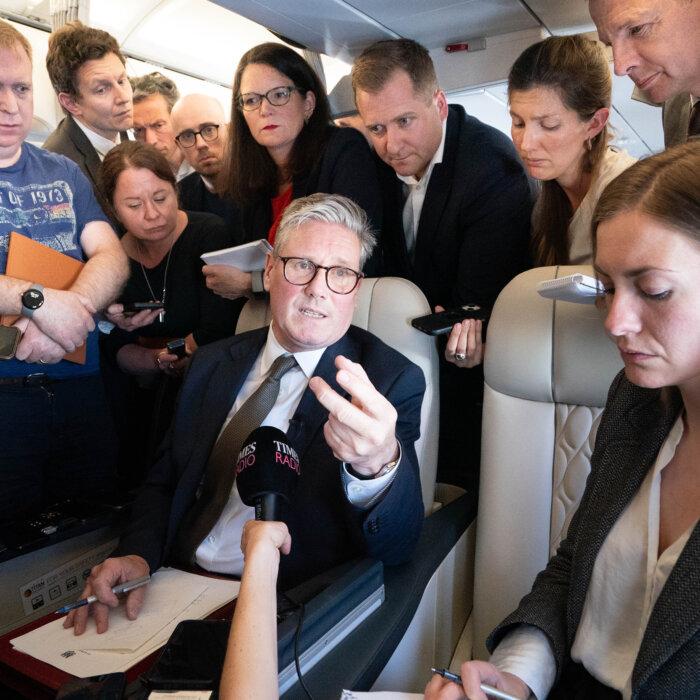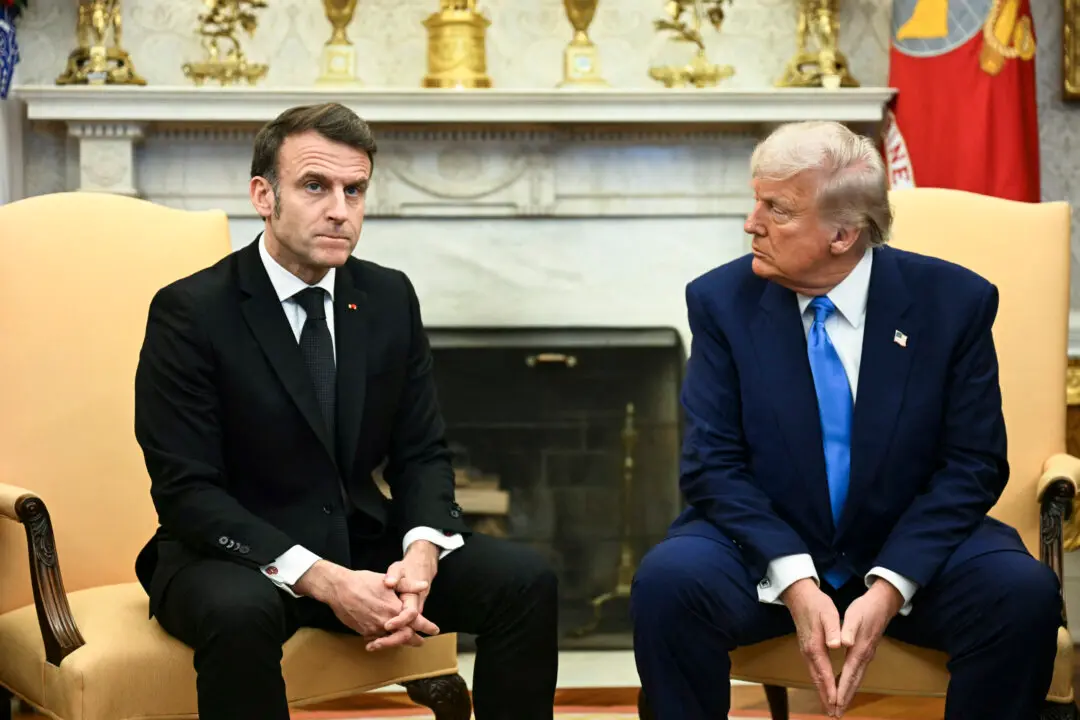Navigating the trade relationship with the United States is set to be one of the UK government’s primary challenges in the coming years, a British think tank has suggested.
With the return of Donald Trump to the White House in January, the United States is expected to impose a range of tariffs on imported goods and ramp up economic tensions with China.
These moves have raised concerns about the potential ripple effect on the global economy.
IPPR analysts described the situation as heralding “a new era of turbulence” in global trade.
“The UK government therefore clearly has an interest in negotiating with the United States to avoid or mitigate future import tariffs,” the report said.
While the UK may not be expected to match the level of U.S. trade measures on China, it will likely be “encouraged” to align its trade policy with that of its top trading partner across the Atlantic, the IPPR suggested.
In the year to June 2024, the United States accounted for 17.6 percent of total UK trade, including exports and imports of goods and services.
China came fifth with 5.1 percent, following Germany, the Netherlands and France.
Shift to the East
While the United States and Europe remain Britain’s crucial trade partners, the UK has been recalibrating its trade relationships post-Brexit, with a notable tilt to the Indo-Pacific and China.Trade deals with Australia (in 2021) and New Zealand (in 2022) eliminated tariffs on UK exports and liberalised agricultural imports.
Despite these efforts, the IPPR noted a “disappointing picture for goods trade,” with UK goods trade dropping 10 percent below 2019 levels by the end of 2023, while G7 peers averaged a 5 percent.
However, services trade has been a bright spot, growing by 12 percent since 2019, making the UK the second-largest global services exporter after the United States.
“Taiwan is more ‘oven-ready’ for this modern agreement; China is much less so. What’s more, China will undoubtedly be resistant to changes in domestic policies that would be needed. The politics though are in the ascendant, and it is not clear how, or even if, a decision will be made,” he said.
China could also face UK duties on imports of electric vehicles (EV), if London chooses to follow in the EU’s footsteps.
In October, the European bloc imposed duties of up to 35 percent on EVs from China for the next five years, following an anti-subsidy investigation.
The IPPR suggested that Britain could face pressure from the United States to ask its trade watchdog, the Trade Remedies Authority, for a similar investigation.
Balancing Act
Labour’s position is that of cautious cooperation and challenge following concerns over Chinese espionage allegations.However, after a six-year hiatus, the UK and China have resumed economic and financial dialogues.
Chancellor Rachel Reeves’s visit to Beijing marked the renewed engagement, resulting in agreements valued at £600 million over five years to enhance collaboration in areas such as sustainable finance, capital markets and the reduction of trade barriers.
“National security and growth are not opposed. They are mutually reinforcing. We must and will continue to engage with international partners on trade and investment to grow our economy, while ensuring that our security and values are not compromised,” she said.
Reeves’s visit drew criticism from Conservative Party figures, including shadow chancellor Mel Stride and former Tory leader Sir Iain Duncan Smith, who was sanctioned by Beijing in 2021 for speaking out against the CCP’s abuse of Uyghur Muslims.
Navigating the Trump Factor
In an interview with U.S. talk show host Hugh Hewitt, Trump has said he has been in communication with Chinese leader Xi Jinping, whom he described as “strong and powerful.”The IPPR has described Trump as “unpredictable” but also a “deal-maker,” suggesting that Britain should be open to negotiations over a free-trade deal with Washington.
The think tank also said that while pursuing a closer trade relationship with the United States, the government should maintain “clear red lines” on food standards and online safety.
“The new Trump presidency is particularly delicate for the UK. The government will need to, on the one hand, offer an olive branch by signalling appetite for an ambitious trade deal, while at the same time strengthening the UK’s trade defences to brace for a potential tariff war.
“With the right focus on boosting green growth, securing economic resilience, and rebuilding vital relationships, the UK can turn the tide and reclaim its place as a leader in global trade,” said Marley Morris, associate director at IPPR.







